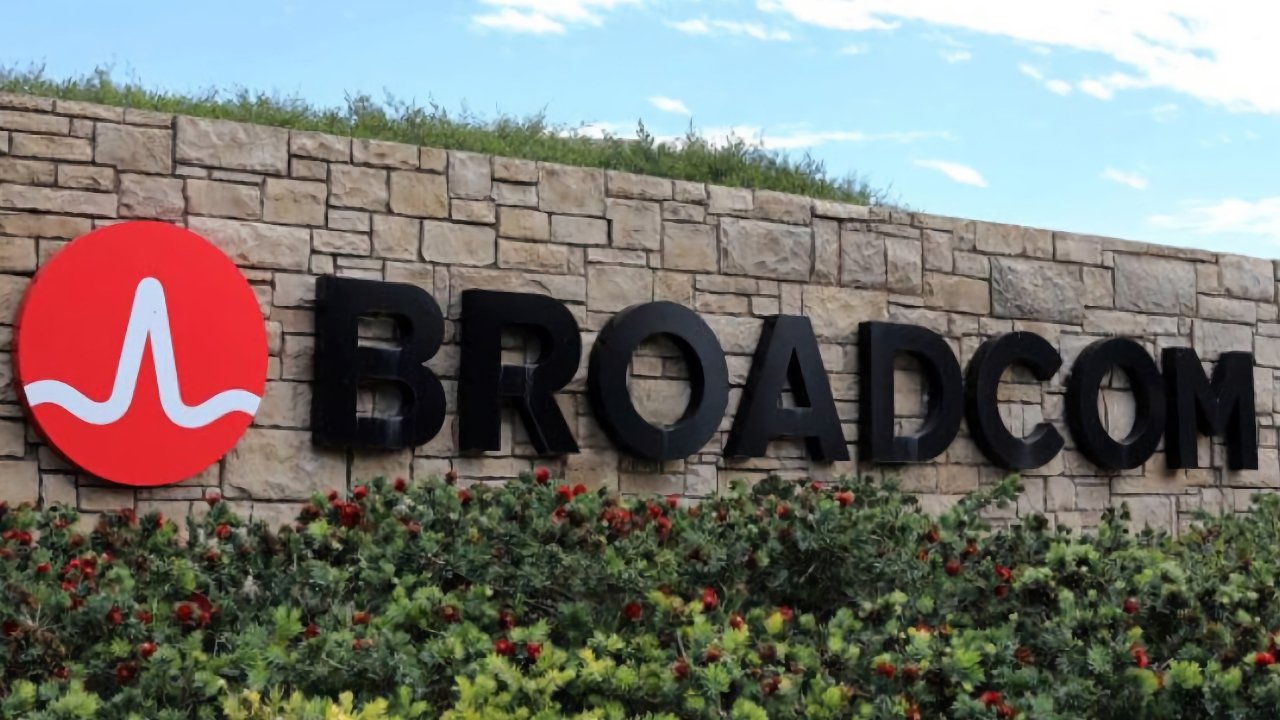FTC charges Broadcom with illegal chip industry monopolization
The FTC believes that Broadcom has illegally used its market power to force manufacturers into contracts, and forbidding buyers of its chips from making deals with other competitors.

Broadcom charged with illegal monopolization
Broadcom is a known Apple supplier that makes components for the iPhone lineup. The company is also known for distributing components for television and broadband internet services.
The Federal Trade Commission has issued a complaint that Broadcom is engaging in illegal monopolization practices. Accusations include requiring customers to enter exclusive contracts with the company.
"Today's complaint reflects the Commission's commitment to enforcing the antitrust laws against monopolists, including in high-technology industries," said FTC Bureau of Competition Acting Director Holly Vedova.
"America has a monopoly problem," continued Vedova. "Today's action is a step toward addressing that problem by pushing back against strong-arm tactics by a monopolist in important markets for key broadband components."
The complaint alleges that Broadcom illegally maintained its power in the three monopolized markets by entering long-term agreements with both OEMs and service providers. These agreements required customers to buy required components through Broadcom exclusively or near-exclusively.
Such loyalty agreements create insurmountable barriers for competition to enter a market. The FTC's proposed consent order requires Broadcom to cease all exclusive agreements, loyalty terms, and prevent retaliation against customers for doing business with competing suppliers.
Broadcom provided a statement to AppleInsider on the matter:
Keep up with everything Apple in the weekly AppleInsider Podcast -- and get a fast news update from AppleInsider Daily. Just say, "Hey, Siri," to your HomePod mini and ask for these podcasts, and our latest HomeKit Insider episode too.If you want an ad-free main AppleInsider Podcast experience, you can support the AppleInsider podcast by subscribing for $5 per month through Apple's Podcasts app, or via Patreon if you prefer any other podcast player.

Broadcom charged with illegal monopolization
Broadcom is a known Apple supplier that makes components for the iPhone lineup. The company is also known for distributing components for television and broadband internet services.
The Federal Trade Commission has issued a complaint that Broadcom is engaging in illegal monopolization practices. Accusations include requiring customers to enter exclusive contracts with the company.
"Today's complaint reflects the Commission's commitment to enforcing the antitrust laws against monopolists, including in high-technology industries," said FTC Bureau of Competition Acting Director Holly Vedova.
"America has a monopoly problem," continued Vedova. "Today's action is a step toward addressing that problem by pushing back against strong-arm tactics by a monopolist in important markets for key broadband components."
The complaint alleges that Broadcom illegally maintained its power in the three monopolized markets by entering long-term agreements with both OEMs and service providers. These agreements required customers to buy required components through Broadcom exclusively or near-exclusively.
Such loyalty agreements create insurmountable barriers for competition to enter a market. The FTC's proposed consent order requires Broadcom to cease all exclusive agreements, loyalty terms, and prevent retaliation against customers for doing business with competing suppliers.
Broadcom provided a statement to AppleInsider on the matter:
Such requirements shouldn't affect Broadcom's business with Apple, but it could open the door to increased competition in the market. The vote to issue the complaint and present the consent order was passed 4 to 0 with one FTC member abstaining."We are pleased to move toward resolving this Broadband matter with the FTC on terms that are substantially similar to our previous settlement with the EC involving the same products. While we disagree that our actions violated the law and disagree with the FTC's characterizations of our business, we look forward to putting this matter behind us and continuing to focus on supporting our customers through an environment of accelerated digital transformation. We are equally pleased that the FTC investigation into our other businesses has been closed without action."
Keep up with everything Apple in the weekly AppleInsider Podcast -- and get a fast news update from AppleInsider Daily. Just say, "Hey, Siri," to your HomePod mini and ask for these podcasts, and our latest HomeKit Insider episode too.If you want an ad-free main AppleInsider Podcast experience, you can support the AppleInsider podcast by subscribing for $5 per month through Apple's Podcasts app, or via Patreon if you prefer any other podcast player.

Comments
2. What judgment are you disagreeing with? The FTC filed a complaint, there has been no legal judgment on the matter. It sounds like you are objecting to due process.
3. Companies do have the right to et a return on their investment and literally no one is disagreeing with that. What they don't get to do it stifle competition in the process. Broadcom was requiring buyers of their chips to agree to not buy competitors products. Competitors can't "swoop in" and steal profits, Broadcom's work is protected via patent. What competitors can't do is innovate and create something the is better because there would literally be no market for it as everyone is obligated to buy from Broadcom.
By your reasoning intel should have implemented agreements like this. Imagine if Apple signed an agreement to only buy intel CPUs when they moved to Mac to intel. The iPhone as we know it wouldn't exist, the iPad would have been a very different product or likely never would have been made, Apple Watch wouldn't exist, AirPods wouldn't exist and Apple Silicon based Macs wouldn't exist. That is how agreements like this kill innovation, Apple wouldn't have been allowed to design and make their own processors.